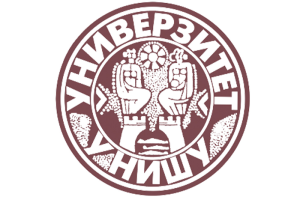University of Niš

The University of Niš was founded in 1965 as a state-owned higher education institution. It is a medium-sized, mature, and well-developed academic community, comprising 14 faculties. Most of them have composite structures, offering wide and diversified study, and research opportunities at both undergraduate and graduate levels. From the University foundation until the academic year 2020/2021, 75.494 students have graduated from the University of Niš, 1.383 of them being foreign citizens, while 7.429 postgraduates acquired their magister degrees and 2.653 candidates, including 73 foreigners, defended their doctoral dissertations.
The mission of the University of Niš is the integration into the European higher education area in accordance with the highest quality standards of education, research, and professional work.
The University of Niš has significant experience in international programs such as Tempus, Erasmus, FP6, and FP7. Within the EM ECW program, the University of Niš entered the exchange of students and teaching staff in 2008 as a partner in Project BASILEUS. In 2011, the University of Niš became a consortium member of Project EM2STEM. It also became a partner of other Erasmus Mundus programs, such as SIGMA, ERAWEB, EUROWEB, and GREEN-TECH. Currently, the University is involved in the following programs: ERASMUS+, IPA, CEEPUS, and HORIZON 2020.
Meet the Team
in LightCode Project

Jelena J. Stanković is an associate professor at the Faculty of Economics of the University of Niš. She graduated from the Faculty of Economics in Niš in 1999; in 2006 she received her Masters at the Faculty of Economics, University of Belgrade; and in 2011 she got her Doctor degree at the University of Niš. Her field of scientific interest is the quantitative economic analysis with main focus on the application of operational research and decision theory methods and models in the analysis of local economic development issues, urban labour market research and smart, sustainable, and resilient development of urban areas. She is an active member of the Committee for Economic Sciences of the Serbian Academy of Science and Arts (SASA), and since 2007 she coordinates the project “Economic Activity and Economy Performance of the Region of Southern and Eastern Serbia: Analysis of Human Resources and the Labour Market as Determinants of the Economy”.
Žarko Popović is a full professor at the Faculty of Economics, University of Niš. His research specialties are Applied Mathematics, Automata Theory, Lattice Theory, Quantitative Methods, Optimization Theory, Multi-criteria Decision Making. He is the author of more than 80 scientific papers. He has vast project experience such as participation in TEMPUS project: Master Programme in Applied Statistics, participation in the Republic Science Foundation of Serbia Grants: Algebraic and combinatorial methods in information and communication technologies, Algebraic structures and methods of information processing, Development of methods of calculation and information processing: theory and application, participation in several multinational projects: Twinning for Excellence in Smart and Resilient Urban Development: Advanced Data Analytics Approach, Advanced Data Analytics in Bussines – ADA, etc.


Sandra Milanović is a junior teaching assistant at the Faculty of Economics, University of Niš, a research assistant at the Innovation Center, University of Niš, and a Ph.D. student at the Faculty of Economics of the University of Niš. She has significant teaching and project experience. Currently she is involved in the Horizon Europe project, UR-DATA. She is the author of more than 60 scientific papers published in domestic and international journals and presented at conferences. A key area of her interest is business management and human resource management.
Milica Jovanović Vujatović is a Junior Teaching Assistant at the Faculty of Economics, University of Niš, Serbia, and a Ph.D. student at the Faculty of Economics, University of Niš, Serbia. She was a scholarship holder of the Ministry of Education, Science and Technological Development of the Republic of Serbia at all levels of study. Her areas of interest are based on the following: business performance management, competitiveness, intangible asset valuation, intangible asset management, and brand management. She has published over 40 articles, and one monograph, and has participated in a number of conferences. She is a member of the Society of Economists “Ekonomika” and Serbian Marketing Association “SeMA”.


Ivana Marjanović is a Ph.D. candidate and a teaching assistant at the Faculty of Economics, University of Nis. Her field of scientific interest is the application of quantitative methods in economics, with the main focus on the application of operational research and decision theory methods and models. She has noteworthy experience in conducting quantitative and qualitative research in the area of urban studies and sustainable development.

